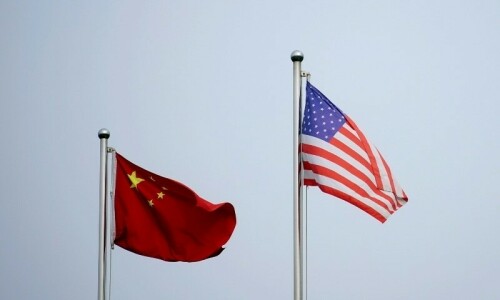ISLAMABAD: Assistive Devices for Disabled and Elderly People has been included in the agenda items of the World Health Assembly (WHA), a sign that efforts undertaken by the Ministry of National Health Sciences (NHS) in 2016 may bear fruit.
After a number of surveys and exercises, the World Health Organisation has finalised 50 assistive devices for special persons.
The WHA in May next year will decide whether to provide the devices for free or at affordable prices.
“In Pakistan, the main beneficiary will be the Prime Minister’s National Health Insurance Programme (PMNHIP), through to which people who will not be able to afford assistive devices will get them through the programme without paying a single rupee,” WHO Disabilities and Injury Prevention Technical Adviser Maryam Mallick told Dawn.
The WHO estimates that over a billion people need one or more assistive products. With a global aging population and a rise in non-communicable diseases, this number will rise to beyond 2bn by 2050, with many older people requiring two or more products as they age. At the same time, only one in 10 people in need currently have access to devices.
Ms Mallick said that people usually think special persons only require wheelchairs, hearing aids and walking sticks, but there are up to 50 devices that people could need.
In response to a question about the background of this matter, Ms Mallick said in 2016, NHS Minister Saira Afzal Tarar wrote to then WHO director general Dr Margaret Chen asking for the issue to be included in the agenda items of the executive board.
“However, the issue was put in the floating agenda items but it was continuously discussed in regional WHO meetings.
“During a recent regional meeting of the WHO, held in October 2017 in Islamabad, a resolution was passed under the title of the Islamabad Declaration to adopt the issue in the WHA.”
“Now a positive development has been observed that the issue has been included in the main agenda items, due to which assistive technology will be discussed in the WHA in May 2018,” she said.
If accepted, the proposal would make it possible to provide hearing aids, wheelchairs, communication aids, spectacles, artificial limbs, pill organisers, memory aids and other essential items for elderly and special persons, she said.
Medicines included in the List of Essential or Life Saving Medicines are currently provided, and it is ensured around the world that such medications are not out of people’s reach. After a recommendation from the WHA, this would also be the case for assistive devices.
An NHS ministry official who was not authorised to speak on the record said that a number of people in Pakistan lose their limbs while operating machines used to cut grass for cattle.
“In addition, a number of people face different kinds of disabilities but cannot afford to buy the devices that could make life easier. So in 2016, we decided to take the opportunity of the WHA to address this issue,” he said.
Special persons receive a number of facilities in developed countries. They have special facilities in parks, public places and buildings, but in Pakistan there is a resources issue that makes it difficult to provide such facilities and people become restricted to their homes, he said.
“After approval of the proposal it will become possible to get assistive devices at affordable rates, and the WHO will play an important role in implementation. The Priority Assistive Products List includes hearing aids, wheelchairs, communication aids etc for older people and people with disabilities to be able to live healthy, productive and connected lives,” he said.
Published in Dawn, December 24th, 2017













































Dear visitor, the comments section is undergoing an overhaul and will return soon.